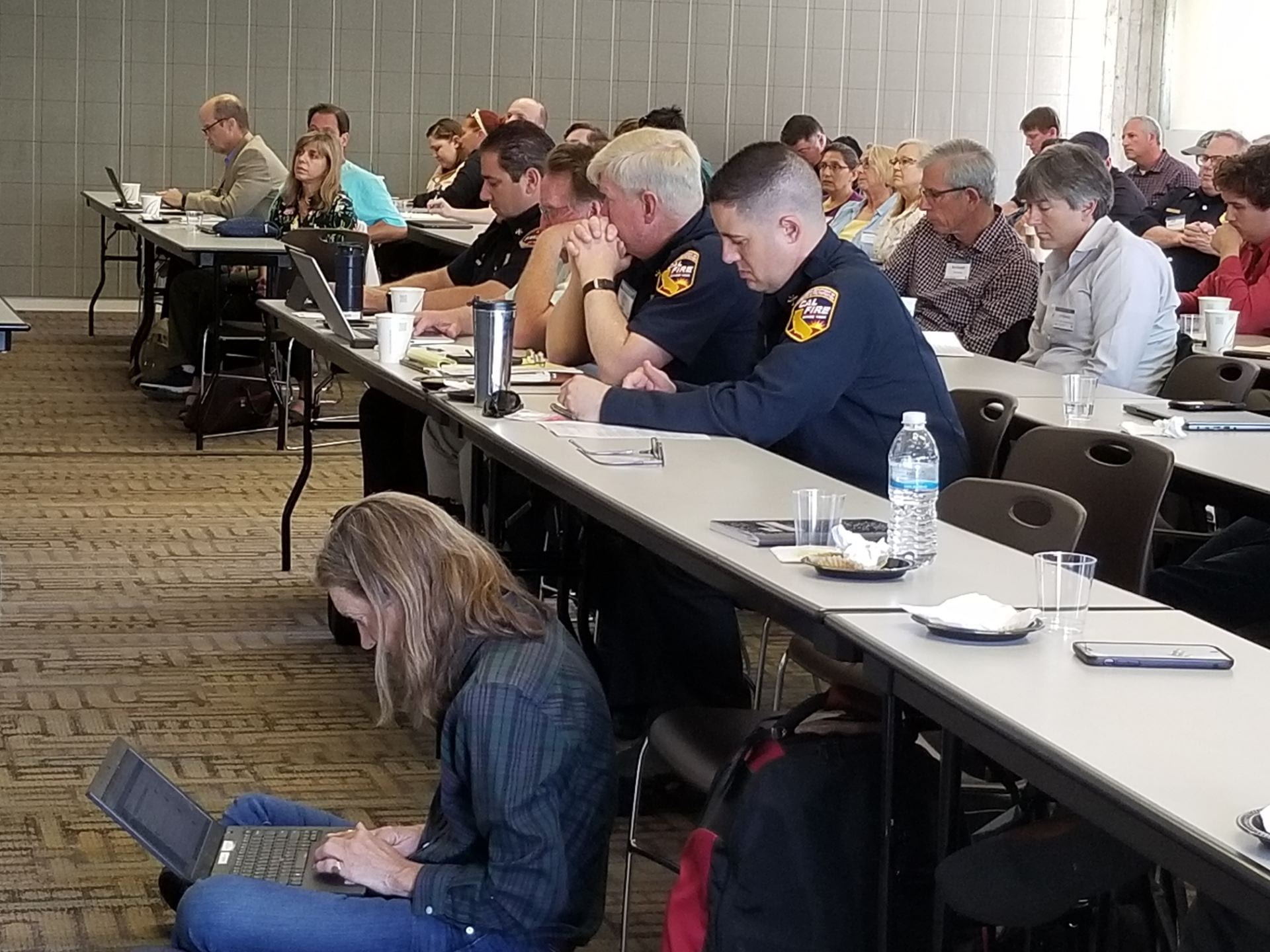
SJSU’s first-ever Fire Weather Research Workshop drew fire agencies, community members and others to learn about the latest scientific research on fire weather.
San Jose State University hosted the Fire Weather Research Workshop April 26 with emergency operations personnel, researchers, students and community members gathered to learn about the latest work around understanding wildfires in the region. Associate Professor of Meteorology and Climate Science Craig Clements, who is also the director of the Fire Weather Research Laboratory at SJSU, said the all-day workshop was the first of its kind in the state.

Craig Clements, associate professor of meteorology and climate science and director of SJSU’s Fire Weather Research Laboratory.
Photo by David Schmitz
“We are bringing together stakeholders from fire agencies, community members, homeowners to learn about cutting-edge research,” Clements said, during a morning session of the workshop.
Heather Kane, ’19 Meteorology, presented her thesis work about how different fire weather indexes compared to the raw data from four recent fires–the Thomas Fire, the Mendocino Fire, the Camp Fire and the Carr Fire. The indexes are meant to predict what conditions will lead to a wildfire to grow to a point of being unmanageable.
“The Camp Fire was an extreme wind event,” she said. “All three indexes responded well to the wind spike. But fires are part of an earth system, so it is not solely about weather. We have to look at topography as well to determine when a fire will become large or unmanageable.”
Kane, who plans to complete her thesis work in the fall, is currently employed with Southern California Edison as a meteorologist.
“I really enjoy emergency management and I feel like what I’m doing matters,” she said. “I am grateful I chose SJSU because it has opened my eyes to a different world. I can help people with the skills I have.”
Kane was one of 17 presenters who included graduate students, professors, researchers and emergency responders.
“The workshop is great and we are learning different things,” Kane said. “Operational workers and scientists are talking together. We have a common goal to help people–saving their homes and their lives. We do it from a distance and they do it on the front lines.”
The workshop was sponsored by the National Science Foundation and the Fire Weather Research Laboratory at SJSU.
